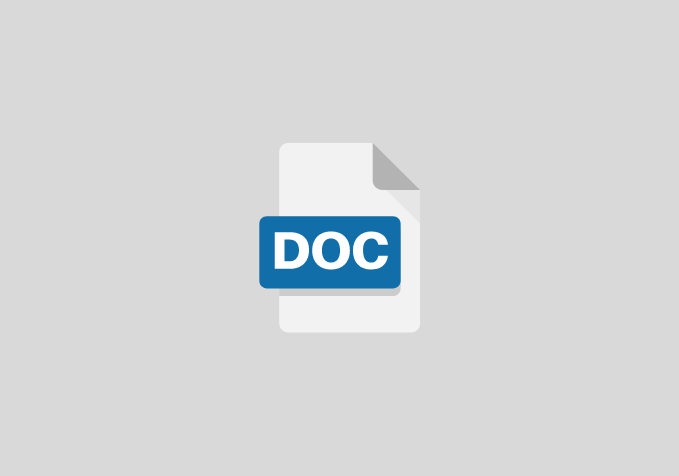Sources of Information Materials in Nigerian Academic Libraries (A Case Study of Federal University of Technology Library, Owerri)
Chapter One
OBJECTIVES OF THE STUDY
- To know the sources of information materials in academic libraries.
- To know the importance of information on materials in academic libraries.
- To know the sources by which academic libraries acquire information materials.
- To the extended academic library (FUTO) needs information materials.
- To find out how information materials enhance the usefulness of the library.
- To identify the benefits of information materials to academic library used
CHAPTER TWO
LITERATURE REVIEW
CONCEPT OF INFORMATION
The growth of information consequent upon the increase in the number of information seekers ahs engendered a plethora or gamut or avalanche of communication. These has as it where increased the volume of world information. The radical and phenomenal growth and advancement of knowledge and literature is thus the consequent of the following:-
- The prevailing dominance of electronic media, e.g. radio and television that turned out vast volumes of information.
- The fragmentation of discipline and knowledge
- Investigations and activities undertaken by scholars and researchers.
- The existence of thousands of other information packages that are steadily turned out printing and publishing industry.
- A growing number, size and diversity of information transfer packages such as journals specifications. An English poet once said that “knowledge” is power and that the key to knowledge is information.
MOWSCHOWITZ said “that information is a basic ingredient of a social organization. It is important in a modern world as a consequence of differentiation and diversification of human activities.
REVIEW OF THE DEFINITIONS
World Health Organization (WHO) report says that information is used for decision making on daily, weekly or monthly basis transactions. It is from these group of data, that information needed is structured and accumulated to provide reports used in decision and in facilitating managerial functions which must be timely and accurate.
Abel defined information as thus information handling and processing is carried out with some degree by almost everyone in the organization of any administration. So policy making is important at any level of planning and viewed in line of system theory. It is clear that no successful policy can be formulated as an isolated phenomenon without resource to information support.
Barnaby wrote that, information is therefore viewed in its entire ramification as the life wire of societies of both government and private entities as they strive towards growth and survival.
It is the basis for decision making and decision can only be as the information on which they are based. Information in turn can only be as good as the quality, authentic and credibility of its sources.
CHAPTER THREE
RESEARCH METHODOLOGY
INTRODUCTION
This chapter presents the procedures adopted in carrying out this research. It covered the population, data collection instrument, method of data analysis.
RESEARCH DESIGN
This study used a descriptive survey and data collected with students from the distributed among the students from the federal University of technology Owerri (FUTO) and frequency percentages table was used for data analysis.
POPULATION OF THE STUDY
The researcher chooses her population from the federal University Of Technology Owerri (FUTO) students, about 300 of them.
CHAPTER FOUR
DATA PRESENTATIONA AND ANALYSIS
RESULTS AND DISCUSSION
In this chapter, the data collected are presented, analyzed and discussed. The analysis and interpretation of data was based on the responses collected from the institution understudy.
The analysis of data was limited to the questions contained in the questionnaire; percentages were used where necessary for clarity purpose.
A total number of 30 questionnaires were distributed and administered to the respondents; the 30 questionnaires were completed and returned by the respondents representing 100%.
CHAPTER FIVE
SUMMARY OF FINDINGS, CONCLUSION AND RECOMMENDATIONS
SUMMARY OF FINDINGS
Findings show that the institutions experience problems during information collection, techniques require professional skills for library staff. The study also sought to find out whether library materials were connected to internet and if connected indicate how it is used.
Thorough planning is needed to ensure that all activities carried out are towards meeting the institutional goals. Information sources are many; it is interesting to know that the library in this study stressed the self-sufficiency of users through a successful user education programme.
CONCLUSION
The importance as well as the contributions of academic libraries to institutions of higher learning in Nigeria cannot be over emphasized. User education programme are available in academic library. However, except for a few catalogue list such as gazettes, maps, video tapes, etc. there are shortage of professional staff to handle the volume of the work at hand. Library staff and faculty have to work together to utilize various strategies to ensure effective service. The study on the sources of information material is a research on the effect of utilizing library resources on the intellectual development of the students.
RECOMMENDATIONS
- The government should assist in providing the necessary information services to the institutions.
- Libraries should introduce internet to their users as another source for getting or retrieving information materials.
- Nigeria libraries should seek legal backing of the government to digitalize their resources for wider access.
- Furthermore, Libraries should provide a support service to the institution service they serve and thorough planning should be carried out in providing adequate source of information materials.
BIBLIOGRAPHY
- Fawowe, S.O (1989). Students’ use of Academic Library: a Survey of the University of Ilorin. Nigeria Libraries and Information Science Review: pg 47-56.
- Gates, Jean Kay (1988). Guide to the use of Libraries and Information Sources. (New York): McGraw Hill Book Company, 1988) p.81.
- Hughes, Graemec (1991). The Information Age, Information Development (1991). 7 (2): 72.
- Nwokocha, Udo (1991), A Foundation Text in the use of Library. (Owerri: Whyley pres 1991). P.19.
- Oduagwu, A. Emmanuel (2006). Libraries and Information Management. Owerri: Demoral Publishers. 2006, P. 205.
- Oduagwu, A. Emanuel (2006). Introduction to Information Science Lecture Handout, for Library Science (2006). P.14.


